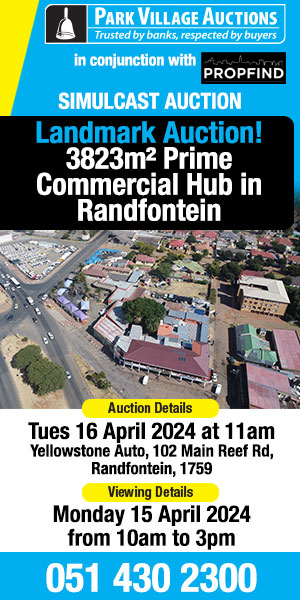 Seven years ago, it was a badly run collection of shabby factories and offices. Today, property loan stock (PLS) Pangbourne is one of two or three SA companies likely to gain most from listed property's resurgence as an asset class.
Seven years ago, it was a badly run collection of shabby factories and offices. Today, property loan stock (PLS) Pangbourne is one of two or three SA companies likely to gain most from listed property's resurgence as an asset class.
PLSs are tax-efficient investment funds that pay out most of their profits as interest.
Pangbourne is transforming - controversially - from the traditional PLS role as owner of a property portfolio into a property conglomerate with an array of interests, including holdings in the listed funds it manages.
In March, Pangbourne acquired a 34% stake in iFour, a PLS that was launched last year at a bad time when interest rates were high. Pangbourne has since swapped some of its better office properties to raise its shareholding to 49%. And iFour has bought other properties to raise its market cap from R300m to R700m. The value of its property portfolio will be R1,4bn.
That is just the beginning of becoming a classic property company for an era of confidence not seen since the 1960s.
Like most listed property funds, Pangbourne was managed by a private management company controlled by its own managers. They mismanaged the fund and the shareholders, including KwaZulu Natal-based Atholl Campbell, cancelled their contract in 1996. This bad experience convinced Campbell, now CEO, that the interests of management must align with those of the shareholders, and persuaded him to bring management in-house.
Pangbourne also beefed up the board with strong nonexecutive directors, including former Old Mutual chief investment officer Liliane Barnard, Nampak deputy chairman Peter Campbell (no relation) and Fabcos's Barney Taita.
These decisions have proved vital to the transformation of the fund. The process began when Pangbourne absorbed some small funds, such as RMS in 1997 and Grove in 2000.
Then Campbell took over the Sage funds, CBD and Pioneer. Pangbourne sold their Johannesburg CBD properties to ApexHi for scrip. "We valued the properties at R90m when we bought them, but ended up with R137m in ApexHi units," says Campbell. "We have since sold some, but the remaining units are still worth R150m."
The ApexHi holding has backed Campbell's efforts to broaden Pangbourne's activities to other areas that enhance income.
The iFour deal includes buying the management company of the R1,4bn portfolio from JHI, and Pangbourne will be looking for more management. Campbell calculates that it will cost another R5m/year for Pangbourne's 100-strong management team to be increased to handle properties worth R5bn - for an additional R75m in fees.
"Ultimately, we can convert our R1,5bn property portfolio into five stakes of R300m in R1bn listed property funds," says Campbell.
Its primary function will be as an asset manager, he says. But it is already a bridging financier through an associate, Paforma. Its extra management can extend that into broader financing. This will also give it more firepower in development partnerships.
Much of the plan is controversial. The large institutions, which are the main buyers of property scrip, prefer single-channel investments that they can easily track and compare. Most investors buy into property because of its steady, annuity-type income.
Creating what Corp-capital property deal maker Marc Wainer calls the "lumpy" income of fees and deals may not be popular. Corpcapital has set the standard so far, as a wide-ranging property conglomerate with strong entrepreneurial flair. It has launched some of the most interesting and successful funds, such as high-yielding inner-city fund ApexHi and hybrid fund Redefine. Investec's property arm is the third of this type and has built Growthpoint from a microcap fund to the biggest on the securities exchange in a few years.
Another potential problem is that the transparency required of a listed company is not conducive to property entrepreneurship, which tends to thrive on inside information that creates opportunities and arbitrage.
And Campbell must still convince the market he's got a winner.








